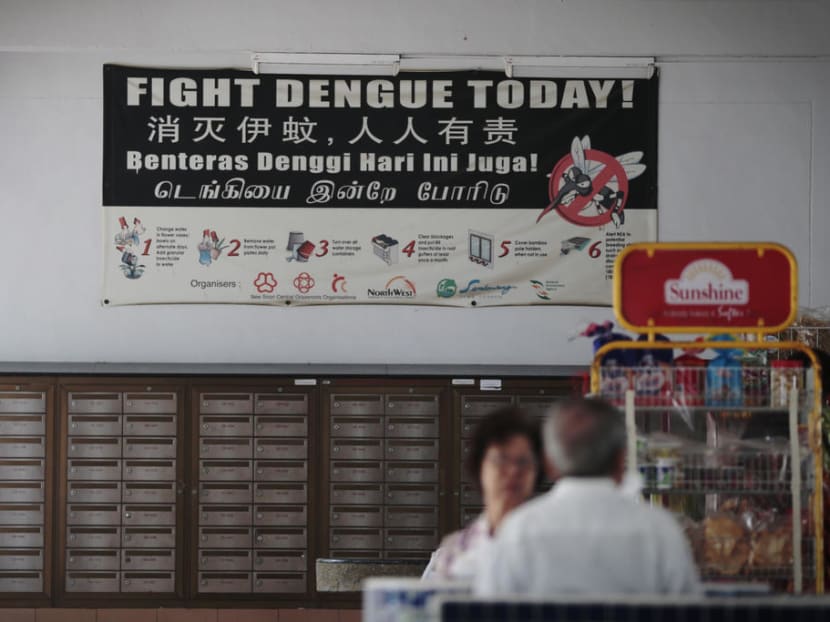More dengue cases reported in Singapore, less common strain detected in more clusters
SINGAPORE — The number of dengue cases in Singapore has increased since the beginning of the year and it could go up further, with the Aedes mosquito population remaining high.

Warmer temperatures may lead to further proliferation of the Aedes aegypti mosquito, which spreads the dengue virus, the National Environment Agency said in a news release on Wednesday.
SINGAPORE — The number of dengue cases in Singapore has increased since the beginning of the year and it could go up further, with the Aedes mosquito population remaining high.
There were 345 cases reported in the second week of 2020, following a five-week decline from mid-November to December last year.
Warmer temperatures may lead to further proliferation of the Aedes aegypti mosquito, which spreads the dengue virus, the National Environment Agency (NEA) said in a news release on Wednesday (Jan 15).
It has also detected an increase in a different strain of the dengue virus, which fewer people would have immunity to.
These factors may lead to case numbers going beyond current levels in 2020, NEA said.
A total of 15,998 cases were reported last year, almost five times the number for 2018. However, the figure is lower than the annual numbers reported in 2013 and 2014.
"The surge in dengue cases in 2019 may be attributable to several factors – including a high Aedes aegypti mosquito population, warmer weather and low population immunity," NEA said.
DENGUE-3 DETECTED IN MORE CLUSTERS
The less common dengue-3 serotype has been detected in more clusters across the island, including at the large clusters of Jalan Bangau near Yio Chu Kang, Cashew Road in Bukit Panjang and Jalan Paras in Chai Chee.
“As Singapore has not seen a dengue-3 outbreak in the last three decades, the population immunity for dengue-3 is low and therefore more susceptible to transmission of the virus,” NEA said.
Since 2016, Singapore has seen mostly cases of the dengue-2 serotype.
“It is thus critical that all residents and stakeholders work closely together with NEA to break the dengue transmission in these clusters, and curtail the spread of the virus,” the agency said.
ACTION AGAINST MOSQUITO BREEDING
As of Monday, there were 107 active dengue clusters in Singapore, according to data on NEA's website.
The largest, with 154 cases so far, was around Elias Road in Pasir Ris. There were also large clusters located in Yio Chu Kang.
In some of the large dengue clusters, mosquito breeding has been detected multiple times in the same homes, NEA said.
“We urge everyone to work with NEA and do our part to remove stagnant water from our environment, to deprive the mosquitoes of their breeding habitats and break the dengue transmission chain,” it said.
NEA will not hesitate to take action against residents and contractors for any mosquito breeding found in their premises, it said.
The agency also reminded residents to be vigilant during the coming Chinese New Year holidays to ensure their homes do not become breeding sites.
This includes removing stagnant water in ornamental plants, properly disposing of rubbish and making sure their homes are mosquito-proofed before travelling. CNA
For more stories like this, visit cna.asia.






